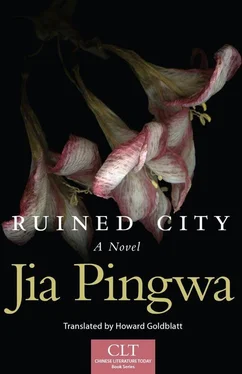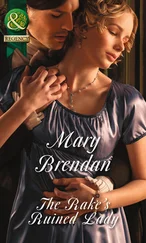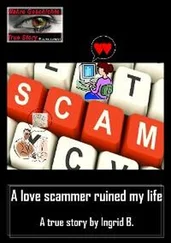“Come on in, Jingwu.” Zhao entered the bedroom to see Zhuang lying in bed.
“How’s your foot, Laoshi? I ran into Meng Laoshi before lunch, and he told me about it. I know how hard it can be when a bad foot keeps you from moving around, especially with nothing to occupy your mind. So here I am, ready to chat. And I’ve brought you some things to help you pass the time.” Zhao took out a fan and a plastic bag holding a folded painting. He opened the fan. Zhuang saw that it was exquisite, with delicate, evenly spaced ribs, slightly yellowed paper sprinkled with tiny gold specks, and a rivet in the shape of a little gourd. The front had a landscape painting in the style of Bada Shanren, nothing special there, but the back was filled with concise, superb handwritten script. A quick read showed that it was not the usual poetry or lyrics from the Tang or Song dynasty, but the final resolution of the Communist Party’s general line of socialism. It was signed by one-time party intelligence chief Kang Sheng, who had stamped the script with two of his seals.
“Is this really by Kang Sheng?” Zhuang sat up.
“I know you like antique vases, so I wrote to a friend. He promised to give you one, saying he’d be in Xijing at the end of the month. Unfortunately, he got in trouble last week when two small Buddha statues he had bought for sixty thousand yuan were confiscated. I wonder where they came from to be so expensive. They were being transported to Xijing from Hanzhong in a taxi that was stopped when it reached Baoji, and he was taken away by the police, along with the statues. Two days ago someone from his family came to see me, saying that they’d heard from the police. The statues have been confiscated, naturally, and he can either spend seven years in prison or pay a fine of a hundred thousand yuan. They have to let the police know which they’ve chosen in three days. Of course, they would prefer to pay the fine. They’ve already spent a hundred and sixty thousand, so a hundred thousand more would mean nothing. What worries them is that the police may not let him go after they pay the fine, so they’ve asked me to find a way to smooth things over with the police. They gave me this fan, saying it’s not an antique, but that it can pass as an object from a modern-day palace. Kang Sheng was, after all, considered a traitor to the Communist Party, and now that he’s dead, this ought to be worth something. He gave it to Liu Shaoqi before the Eighth National Congress. A former opponent of Liu, Kang tried to ingratiate himself once he saw that Liu’s star was on the rise. He wrote the text on this fan to get on Liu’s good side.”
“This is terrific,” Zhuang said. “Kang Sheng was a pretty good calligrapher.”
“Of course. He was considered a master. I know you appreciate good calligraphy, so you can keep it.”
“A gift must be repaid with a gift in return, Jingwu. Look around, and if you see anything you like, you can have it.”
“I don’t want anything except a few of your handwritten manuscript pages.”
“I’m not a Nobel laureate, so I can give you a bundle of them.”
“I just want a few. Look, I have something else for you. I’m sure you’ll like it.” Zhao opened the plastic bag to reveal a large ink painting, Climbing Xiyue’s Mount Hua by Shi Lu. With an unusual composition and unrestrained brushwork, it was bold and imposing. Recognizing right away that it was a later work, executed after Shi suffered a mental breakdown, Zhuang could not stop admiring it. He read aloud a line of tiny writing on the side: “If you want to see into the distance, you must climb a high building.”
“Shi has truly lost his mind. His calligraphy has the feel of inscriptions on ancient stones and bronze, but he made a mistake copying the Tang poem. In Wang Zhihuan’s original ‘Climbing the White Stork Tower,’ it was ‘If you want to see to the distant horizon, you must climb another high building.’ But Shi has dropped ‘horizon’ and ‘another,’ and now the inscription makes no sense.”
“He’s a painter, not a writer. Maybe after dropping the first word, he thought it wouldn’t look good to add it on the side, like they used to do, so he decided to omit the second one, too. That’s a vivid demonstration of his mental state. This painting was cheap; I bought it from a woman in Lintong for three hundred. I could easily get forty or fifty thousand if I sold it in Guangzhou.”
“Really, that much?”
“I’m an expert on this subject. Right now, Shi Lu’s paintings fetch the highest prices in the south, and they sell for as much as a hundred and twenty thousand yuan overseas. Do you know how Wang Ximian did so well financially? He did it by faking Shi Lu’s paintings to scam the foreign tourists. I know someone in that business who worked with Wang before, hawking fake paintings. After a recent fall-out with Wang, he came to see me about a joint gallery. You can’t make much money selling paintings by famous or lesser-known painters in a gallery. The key is to sell fake works. We could have someone fake the paintings, and then you could write a line as a foreword or a colophon. I’m sure we’d make a killing.”
“But they’d clearly be fakes. With my colophon, it would be a huge loss of face if we were found out.”
“Not true. If we were found out, we’d simply claim that we were tricked into believing they were genuine. If we had known they were fakes, then why would you have shown how much you treasured them by writing a colophon? You only decided to sell them because you were short of money. These days no more than two or three out of every ten murder and arson cases are solved, so what we do would be of no significance to the authorities, who would not have an easy time proving they were fake. An expert would buy them even if he knew they were fakes. You know why? Because they’d still be valuable, though not as valuable as the genuine articles. Besides, you’re a celebrity and a renowned calligrapher, which would make them collectible. Don’t turn your nose up at all that money and choose instead to make a pittance by slaving away at your desk.”
“You make it sound so easy, but I’m not convinced. Something like that takes time. Where would the gallery be? Just for appearance’s sake, you’d need to hang a few pieces by well-known artists, and I can only supply a few.”
“I’ve already looked into that. There’s an empty storefront suite next to our bookstore. We’ll buy it and turn it into a gallery, a perfect companion for the bookstore. You don’t have many scrolls from famous artists, and that’s fine, because I have some back home. We could also find a few more over the coming days. Did you know there’s a major work in Xijing that has yet to make an appearance?”
“What is it?”
“According to the family of that friend of mine, the owner of the fan came to Xijing three months ago to ask Gong Jingyuan’s grandfather to write a script for a stele. When it was done, the man returned with a piece of Mao Zedong’s calligraphy, which was a partial copy, only a hundred and forty-eight words, of Bai Juyi’s long poem ‘Everlasting Sorrow.’ Each character is big, about the size of a rice bowl. When he took it to the house, Gong Jingyuan was out, so his son, Gong Xiaoyi, accepted it on his behalf and reciprocated with four scrolls he’d sneaked out of his father’s collection. Now, Gong Xiaoyi is a good-for-nothing opium addict, so he wanted to sell Mao’s calligraphy for a high price to buy opium. I don’t suppose it’s sold yet, and I think I know how to get it. If we had that, we wouldn’t have to worry about not having enough to show in our gallery.”
“You’re quite the wheeler-dealer. What you’re saying sounds all right, but I can’t do it. Why don’t you go talk to Hong Jiang.”
Читать дальше


![Matthew Vincent - [you] Ruined It for Everyone!](/books/216429/matthew-vincent-you-ruined-it-for-everyone-thumb.webp)









